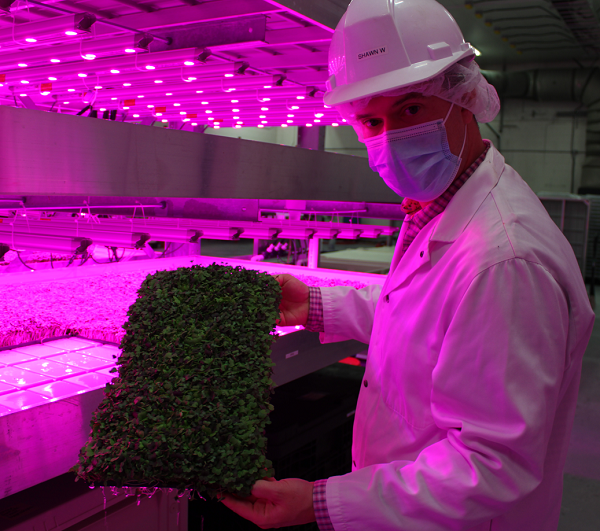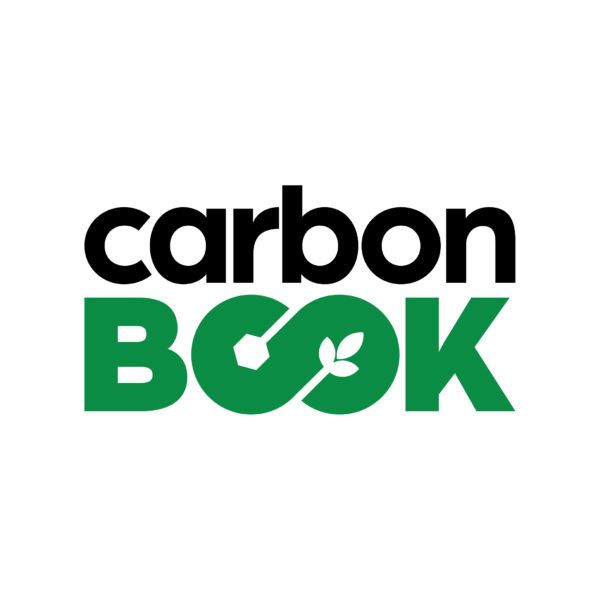Canada’s Largest Commercial Vertical Farm | Q&A With GoodLeaf Farms’ Shawn Woods
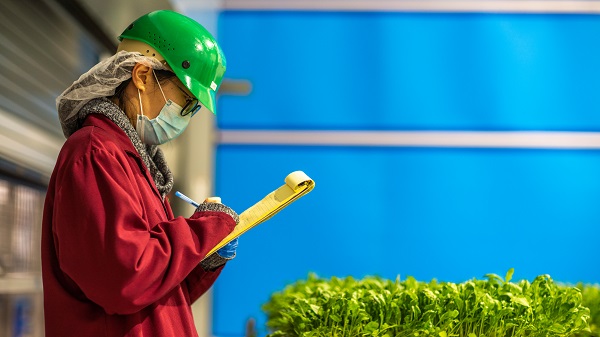 What started in 2011 as a dream to deliver fresh, nutritious produce to Canadians year-round has become reality. As Canada’s first and largest commercial vertical farming operation, GoodLeaf Farms began supplying microgreens and baby greens to retail locations and restaurants throughout Ontario in 2019.
What started in 2011 as a dream to deliver fresh, nutritious produce to Canadians year-round has become reality. As Canada’s first and largest commercial vertical farming operation, GoodLeaf Farms began supplying microgreens and baby greens to retail locations and restaurants throughout Ontario in 2019.
Indoor Ag-Con is excited to kick off our 2022 Indoor Ag-Conversations webinar series on June 1, 2022 at 2:30 pm ET with the idea-packed case study session , “A Dream Becomes Reality” with GoodLeaf Farm Manager Shawn Woods and equipment partners from Signify & Montel. Ahead of the webinar, we had the chance to catch up with Shawn to learn a little more about how GoodLeaf is delivering on its mission and what’s next for the growing company.
What are you growing at your Guelph, Ontario operation, and, what differentiates GoodLeaf from other vertical farms in the marketplace
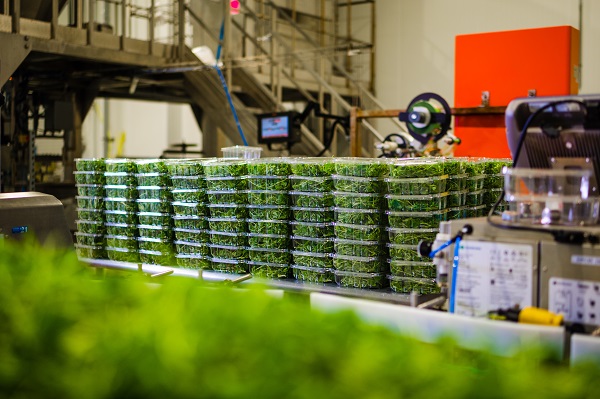 We are currently growing microgreens — Spicy Mustard Medley, Pea Shoots, Asian Blend, Micro Arugula, Micro Radish, and Micro Broccoli — and baby greens – Ontario Arugula, Ontario Spring Mix and Ontario Baby Spinach.
We are currently growing microgreens — Spicy Mustard Medley, Pea Shoots, Asian Blend, Micro Arugula, Micro Radish, and Micro Broccoli — and baby greens – Ontario Arugula, Ontario Spring Mix and Ontario Baby Spinach.
In terms of what sets us apart, we are Canada’s largest commercial vertical farm, and the only one with scale to supply the major grocery chains with safe, fresh, and healthy greens. We lead the industry in Food Safety with SQF Level 2 Certification and a positive release program, which means that we test every harvest for pathogens and only release them once they have been cleared by our internal lab
In addition, our proprietary technology enables us to grow nutrient-dense local food that is environmentally conscious 365 days a year.
From Day One, our focus has been on growing healthy, tasty food that people want to eat. We use our technology to grow food, while others use technology to collect data.
Sustainability is a key part of your mission. Can you share some of GoodLeaf’s sustainable practices and initiatives?
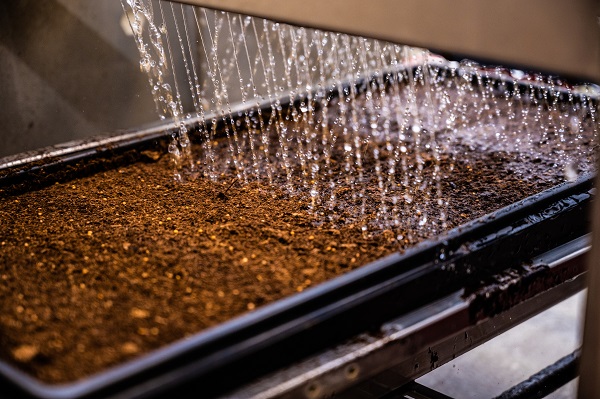 Our sustainable practices include:
Our sustainable practices include:
- Water use in vertical farming is 95 per cent less than traditional farming methods.
- More food can be grown per acre, maximizing use of space, and limiting land use.
- Because our farm is indoors in an environment that is almost entirely controlled, there are no pests, bugs, or birds — and thus no pesticides, herbicides or fungicides are used.
- The water used is cleaned and recirculated, so there are no run-off issues.
- Peat / Soil is recycled and re-used in landscaping.
- Favorable carbon footprint compared to traditional farming.
- By providing a local food source, we are removing thousands of food miles annually; Leafy greens coming from the southwestern United States are trucked across the continent, burning fossil fuels the whole way.
Last year, GoodLeaf announced an aggressive growth and expansion plan to build a national network of vertical farms. Can you share updates, including progress on the Calgary project?
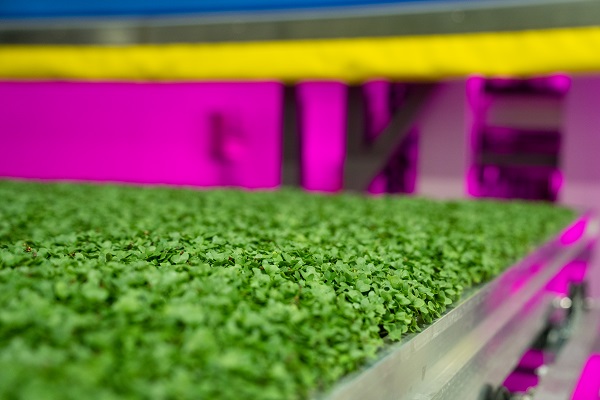 Construction on our Calgary farm is well under way. We are on schedule to have the 95,000-square-foot farm open and providing fresh leafy greens to grocery stores across Western Canada in first half of next year.
Construction on our Calgary farm is well under way. We are on schedule to have the 95,000-square-foot farm open and providing fresh leafy greens to grocery stores across Western Canada in first half of next year.
We are continuing to move forward with our plans for a similar facility in the Montreal area but are not able to provide additional information at this time.
GoodLeaf is working on a number of R&D projects with universities to advance the science & engineering of vertical farming. Can you tell us about any of the projects currently underway?
We have an MoU with the University of Guelph to build stronger links between theoretical research, the development of technology and processes and practical application in the field.
Some of the best and most innovative agricultural research in Canada happens at the University of Guelph. Building on the vertical farm technology we have already developed and are using; it will be exciting to see where this partnership can take us.
Some of the projects currently under way with the University of Guelph include research into:
- Enhancing yields, plant science and new product development.
- Substrates, growing compounds, and microbiology.
- Human resources and training future experts in the field of vertical farming.
What’s next for GoodLeaf ?
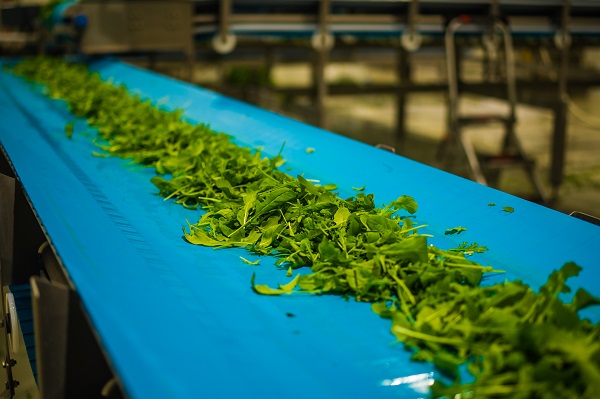 We are constantly innovating and experimenting with new processes and products to bring the best possible leafy greens to Canadian consumers.
We are constantly innovating and experimenting with new processes and products to bring the best possible leafy greens to Canadian consumers.
Efforts continue to build partnerships with grocery retailers across Canada, and we are aggressively pursuing growth into the restaurant and hospitality sector. Chefs can do wondrous things with our leafy greens, and we are excited to see where this journey will take us.
While Canada is our priority today, we can’t wait to bring our greens to consumers across the globe
What’s more, we are excited about other opportunities for vertical farming to add value — expanding the portfolio beyond leafy greens or growing specialty crops for healthcare
To learn more about GoodLeaf Farms, visit the website at www.goodleaffarms.com and check out this video that takes you through a quick tour of GoodLeaf’s seeding and grow rooms, harvesting and packaging:
